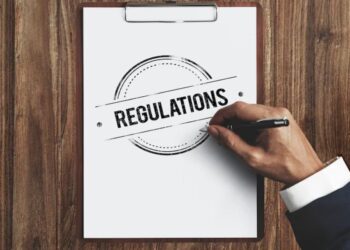When schools fail to provide children with disabilities with an appropriate education, parents often feel at a loss. But there are laws in place to protect such students, and understanding them can spell the whole difference between a child falling through the cracks and getting real help.
The Laws That Protect Students
The Individuals with Disabilities Education Act, or IDEA, is the primary law that governs special education. It highlights that every child with a disability is entitled to a free and appropriate public education. That means schools can’t just stick kids in the corner and forget about them. They must teach them in ways they can learn.
There’s also Section 504 of the Rehabilitation Act. This one’s broader than IDEA. It says schools can’t discriminate against students just because they have disabilities. So if a school gets federal money (most public schools do), they must follow these rules. The Americans with Disabilities Act adds more protection on top of that.
But while these sound like simple laws, using them isn’t always easy because schools have lawyers, and they know the system. That’s why many families work with a law firm for special education cases in Connecticut or wherever they live. Having someone who knows these laws inside and out can change everything.
What Discrimination Actually Looks Like
Discrimination doesn’t always announce itself. Sometimes a teacher says something obviously wrong, but it’s often quieter than that.
Maybe the school refuses to test a student despite repeated requests from the parents. Or they do test the child and then claim nothing’s wrong when there clearly is. Sometimes the schools admit the kid needs help, but only offer 30 minutes of speech therapy a month when the child really needs it weekly.
Another disturbing trend is that of discipline. Children of color with disabilities are often punished more severely for infractions than others. Studies have found a disproportionate number receive suspensions and expulsions while others receive warnings for the same behaviors.
These disparities suggest the existence of bias in school discipline policies. Numbers like these prove it: more than 1 in 4 Black boys with disabilities enrolled in secondary schools-27%-were suspended, according to recent research.
Schools also play budget games. They might say they can’t afford certain services or that a child doesn’t “really” need what’s being requested. But parents need to know that if the law says a child needs something, the school’s budget problems aren’t an excuse.
The Individualized Education Program
Every student in special education gets an Individualized Education Program, which is a legal contract spelling out exactly what help the student gets, how often, and who provides it.
If it says your child gets occupational therapy twice a week, the school must provide it. They can’t skip it because the therapist called in sick or because it’s inconvenient.
Parents do have real power in these IEP meetings because the law requires parental participation. That means you must sign papers, you can disagree, you can ask questions, and you can request changes.
Schools, at times, rush these meetings. They come in with a pre-written IEP and act like everything’s already decided, but that’s not how it’s supposed to work. Parents can slow things down, ask for another meeting, or bring an advocate to help them push back.
There’s also the principle of Least Restrictive Environment, which requires that students with disabilities learn alongside other kids in regular classrooms whenever possible. Schools can’t assume that kids belong in separate special education rooms just because it’s easier that way. They need to prove why including them isn’t going to work.
When You Can’t Agree With the School
Sometimes, parents and schools hit a wall. That’s when due process hearings come in, which disability law honors. It’s like going to court, but it happens through the school system first. An impartial hearing officer (someone who doesn’t work for the school) listens to both sides and decides. Parents can bring witnesses, show documents, and challenge what the school says.
These hearings resolve all types of disputes. Perhaps the school refuses to assess a child, they provided inappropriate services, or they wish to place a student in a more restrictive environment, and the parents object. Each of these can be taken to a hearing.
There are also Manifestation Determination Reviews. These occur when schools want to suspend or expel a student with a disability. The onus of proof is on the school to show that the bad behavior was not related to the disability. If it were, they can’t just kick the kid out; they must address it through the IEP instead.
What Happens When Schools Mess Up
When schools violate students’ rights, they must make it right. One way schools fix things is through compensatory education. For example, if a school should have provided reading help for two years and didn’t, that student might get two extra years of reading help now, even if they are older. It’s making up for lost time.
Sometimes, public schools simply cannot meet the needs of a student, or they refuse even to try. Parents may place their child in a private school and request that the district pay for it through tuition reimbursement. This is tricky to win because parents must prove that the public school failed and that the private school is appropriate.
Some cases transcend the hearings into the regular Federal Court. If the discrimination is particularly bad or schools repeatedly violate the rights, parents may sue under Section 1983 or other federal laws. Over the years, courts have issued a vast number of decisions, which lawyers term ‘case law’, that help a judge decide who is right in such disagreements.
Getting Help and Support
Nobody expects parents to figure all this out alone. Special education advocacy has come a long way since Congress first passed Public Law 94-142 back in 1975. That was the original law guaranteeing education for kids with disabilities.
Now there are organizations everywhere that help families. Some provide training and support so parents can advocate for their own kids. Others offer special education advocacy services or connect families with legal representation.
The Office of Special Education Programs oversees how schools follow these laws. Organizations that work on behalf of people with disabilities support families every day, answering their questions and fighting on their behalf. Many of these groups help for free because they know most families can’t afford lawyers for every problem.
Why This Matters
Children with disabilities are legally entitled to a real education. Schools must provide special education services that help students learn. They can’t discriminate, ignore problems, and cheap out because of budget concerns.
But rights only matter when people use them. Too many families don’t know these protections exist. They accept whatever the school offers because they don’t realize they can push back, or they try to fight and get overwhelmed by the process.
Understanding these laws does not make all things easy. Schools still push back, and the hearings still take some time. Knowledge changes the conversation, though. When parents know what their children are entitled to, they can demand it. And often, schools take things more seriously when they know parents understand the law.










